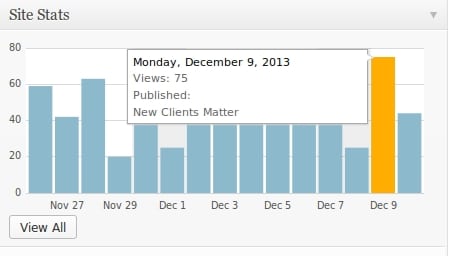Marketers have suspected for some time that organic Facebook post reach is on the decline. Last year, Facebook released an algorithm update with the stated goal of weeding out spammy content. At the time, the social network reassured business users that median page reach would not change. But after the change some brands claimed that their unpaid (organic) posts were appearing in fewer fans' News Feeds. Companies were understandably concerned about their continued ability to reach consumers.
Shortly after the change, Group M Next performed research confirming marketers' suspicions. The study, which looked at 25 brands, found that in the five weeks post-update the share of Facebook users who were seeing organic posts in their News Feeds from a brand they liked had dropped by 38 percent. Even if Facebook's intention had been only to target spammy content, the change also seemed to affect legitimate brand activity.
Facebook is now acknowledging that businesses are going to have to pay for reach. In the document "Generating business results on Facebook," the company states that brands should expect organic distribution of posts from Facebook Pages to continue to decline over time. The document then suggests that companies consider using paid distribution to augment their efforts and ensure more posts make it into their fans' News Feeds.
The negative trend in organic post visibility can be explained in part due to an overall increase in Facebook activity. More brands are participating, and users are liking more Pages. Content is being created at a rate with which most users cannot keep up. There is simply too much media to consume. Additionally, one of Facebook's main goals from a business standpoint is increasing the effectiveness of its paid ads – more revenue should translate into higher returns for investors. While it make sense for Facebook to push ads, to brands this strategy seems to confirm that the network values them more as paid contributors than as producers of relevant, organic content.
What does Facebook's admission mean for firms with active Pages? Attorneys may need to raise posting levels to increase the probability of reaching fans. The quality of activity also matters, as does engagement. Commenting, sharing others' posts and producing valuable content is critical. Firms must stand out with unique posts that spur interaction – simply broadcasting sales copy is not enough. Firms should also direct people to their Facebook Pages to encourage more likes. Generally, Facebook opens features to brands progressively, with more options appearing as the fan base grows. Paid social posts, which garner the most reach, become available to firms as they grow their Page likes.
Marketing on Facebook will become more costly as organic reach drops. Take this into consideration when planning your marketing budget for the coming year and look for potential alternatives. You will need to do some testing to determine whether Facebook's new paradigm works for your firm.
